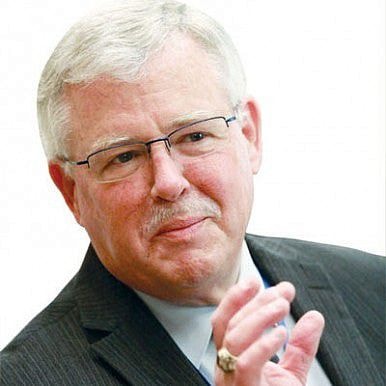The cycle of hatred and friendship between Korea and North Korea will repeat itself.
VRegarding the inter-Korean agreement, Professor Carl Thayer, an expert at the Australian Defense Force Academy, said Pyongyang would repeat the cycle of hatred and friendship with Seoul.
 |
| ProfessorCarl Thayer, researcher at the Australian Defense Force Academy. Photo: thediplomat.com |
“The Korean War was temporarily halted after the armistice agreement in 1953. However, this was not a peace treaty, so the war has not really ended. The Korean Peninsula has been divided into two since then. In order to maintain its deterrence, North Korea has stepped up research and development of nuclear weapons and other weapons to counter hostile forces. Pyongyang wants to ensure that it does not have to defend against external attacks, especially from the US,” Professor Carl Thayer told Zing.vn.
This year, South Korea accused North Korea of planting landmines along its shared border in protest of annual US-South Korea military exercises. Seoul responded by restarting anti-Pyongyang propaganda broadcasts from loudspeakers near the border. Those actions sparked an artillery exchange between the two countries, pushing tensions to a boiling point, Thayer said.
As tensions escalated, North and South Korean officials agreed to resolve the situation through talks. The outcome of the August 25 talks not only defused the conflict but also created a way to resolve long-standing differences. After many years, the two sides agreed to create conditions for families separated by the war to reunite during the Mid-Autumn Festival.
Commenting on the agreement between the two Koreas, Professor Thayer said: “Pyongyang is creating events, pushing the situation to the brink of war to attract attention, end the isolation and divide the alliance between the US and South Korea. Pyongyang will let the cycle of friendship and hatred with South Korea repeat itself many times by canceling agreements with its neighbor.”
Other analysts have also made much of the agreement between Seoul and Pyongyang. In an interview with the Independent, Alistair Coleman, a North Korea expert at BBC Monitoring, said Pyongyang would not allow war to break out.
“Kim Jong Un certainly knows that war would be a military disaster for Pyongyang. Recent events are a move by North Korea to increase tensions to gain leverage at the negotiating table,” Coleman said.
However, Remco Breuker, a professor of Korean studies at Leiden University in the Netherlands, believes that Pyongyang faces certain difficulties when playing the "brinkmanship" game.
“North Korea has played this game badly. It threatened and was threatened, leaving the country in a difficult position because South Korea and the United States have shown flexibility by agreeing to talks and suspending military exercises at a time of tension. However, Seoul has shown its toughness by refusing to meet Pyongyang’s demands unless it accepts responsibility for the landmine incident.”
According to Zing.vn
| RELATED NEWS |
|---|
